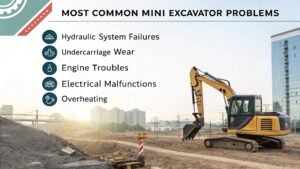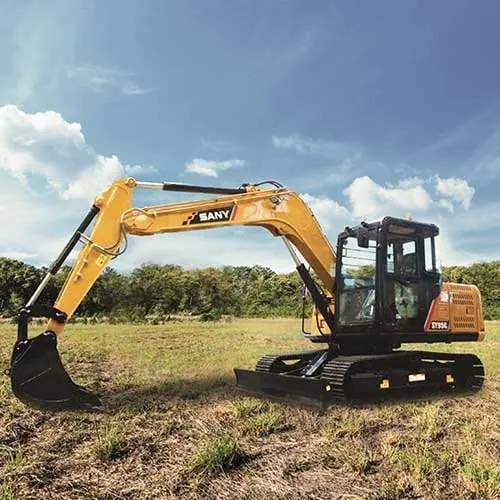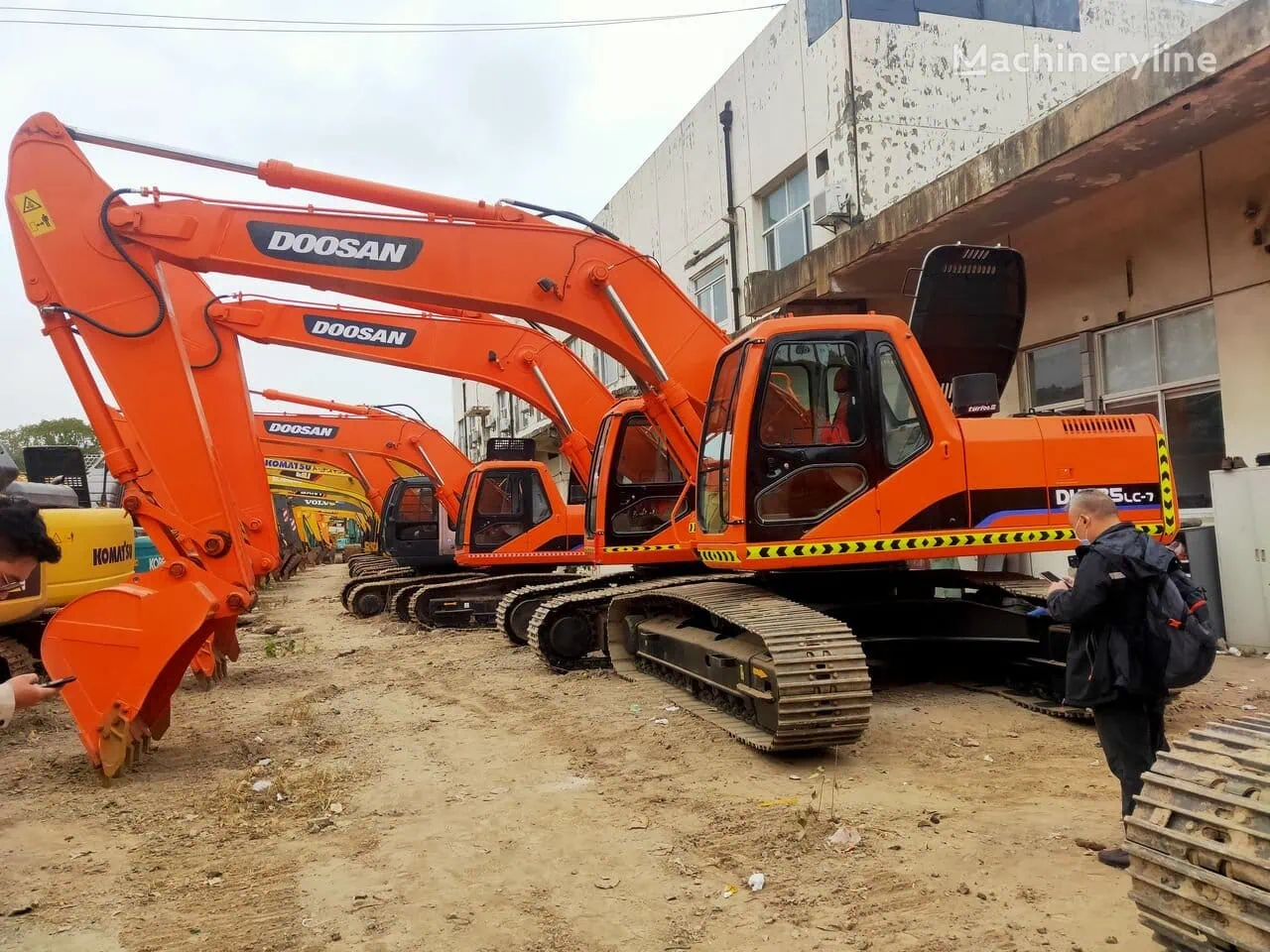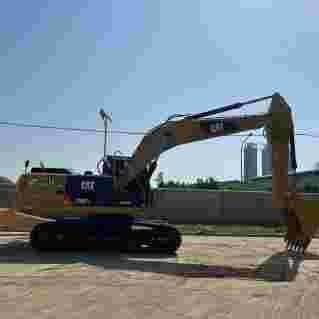When it comes to construction projects, choosing the right machinery can make or break your success. Do you need precision excavation, or is large-scale earth-moving your priority? The choice between a backhoe and a bulldozer can be overwhelming. Let’s break down the key differences to help you make the right choice.
Choosing between a backhoe VS bulldozer depends on the specific needs of your construction project. A backhoe is ideal for precision digging and trenching, while a bulldozer excels in land clearing, grading, and heavy earth-moving. Both machines have their strengths, so understanding your project’s requirements is crucial in selecting the right equipment. This guide will help you decide which machine will best suit your needs, from small-scale excavation to large-scale land clearing.
Now that you have a basic overview, let’s dive into the specific functions and advantages of each machine.
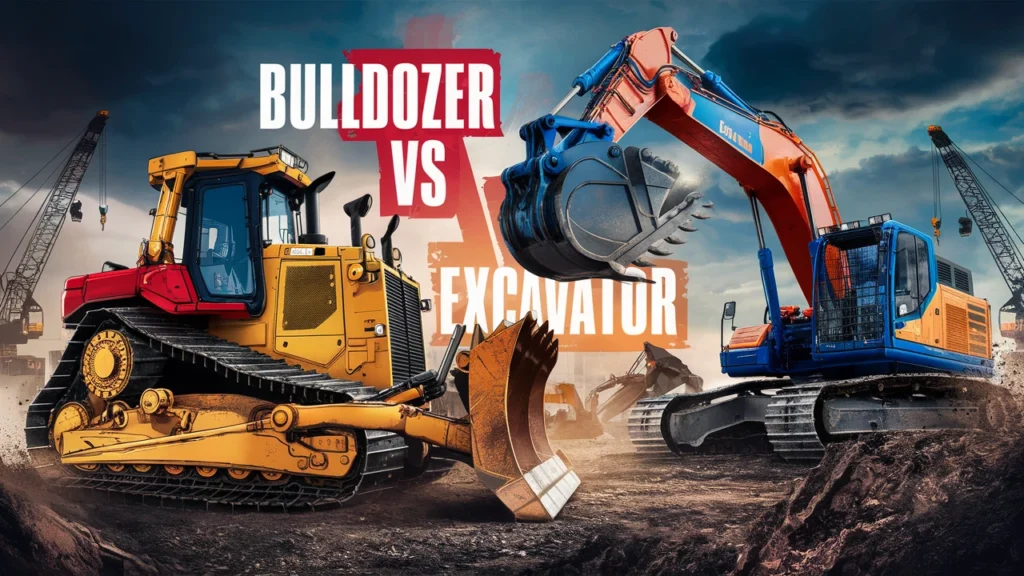
Tabla de contenido
PalancaWhat is the Main Function of a Backhoe in Construction?
Backhoes are known for their versatility. They are typically used on construction projects that require precision. Maybe you need to dig a trench? Maybe you need to dig an excavation for a foundation? Maybe you need to load some materials onto a truck? Especially in those types of situations where you need precision work, the backhoe may be the way to go. The backhoe’s articulated arm, which includes a digging bucket and a loading bucket, allows you to do all kinds of things in a somewhat limited amount of space.
Backhoes excel at:
- Trenching: Ideal for digging narrow, deep trenches for things like water pipes, sewer lines, or electrical cables.
- Excavating Foundations: Because the backhoe can reach down deep, it’s also great for digging trenches for building and structure foundations.
- Material Handling: Backhoes are perfect for loading and moving soil, gravel, sand, and other materials, which makes them great for site prep
The ability to swivel, extend, and maneuver in tight spaces makes the backhoe far more versatile than something like a bulldozer, which might be a little bit too big to do the work you need to get done. So, if you need something that requires precision digging or fine excavation work, the backhoe is probably the way to go.
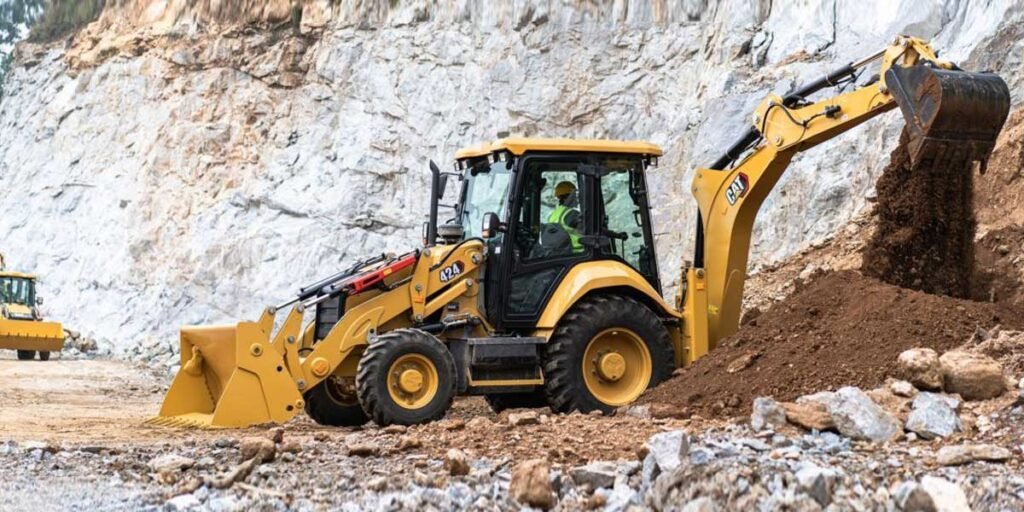
What is the Main Function of a Bulldozer in Construction Projects?
Bulldozers are big, powerful, heavy machines designed for pushing and moving large amounts of earth, debris, or rubble. It’s the big, giant-looking piece of equipment you always see that’s got that big blade in front of it. That’s called a bulldozer. Necessary for things such as land clearing, grading, leveling, that’s what will typically be pulling out on new pieces of property.
Bulldozers are typically used for:
- Land Clearing: Bulldozers can efficiently move and clear trees, brush, rocks, and other debris to get a site ready for construction.
- Leveling and Grading: If you need to level a piece of ground for construction of a building, the building pad, or a road, the bulldozer can push around large amounts of dirt and soil to level it out.
- Road Construction and Maintenance: Bulldozers can shape and level the earth to create and maintain roads.
The big, massive blade on the front of a dozer allows it to move huge amounts of material with relative ease. For moving around lots of stuff like large amounts of dirt, a bulldozer is the way to go. When it comes to precision, you want to use a backhoe.
What Are the Different Types of Bulldozers and Their Uses in Construction?
There are several different types of bulldozers, each designed for specific types of tasks. Understanding the different types can help you choose the best machine for your project based on terrain, load capacity,
and overall project scope. The main types of bulldozers are:
Crawler Bulldozers:
Crawler bulldozers are equipped with tracks, not wheels. This gives them excellent traction on rough or uneven terrain, making them ideal for heavy earth-moving tasks in difficult ground conditions such as mining, road construction, or demolition. Because the tracks spread the machine’s weight over a larger area, the bulldozer doesn’t sink as much in soft ground as it would with tires.
Wheel Bulldozers:
Wheel bulldozers are equipped with rubber tires instead of tracks, so they can move faster and are more maneuverable on smooth surfaces like paved roads or hard, compacted soils. These are great for urban
construction projects or work on hard surfaces where speed and freedom of movement are important. Wheel bulldozers are often used for grading, land preparation, or cleaning up debris on flat terrain.
Mini Bulldozers:
Mini bulldozers, as the name implies, are smaller and lighter than road graders. Despite their lighter weight, these machines are powerful and excellent for working in smaller, more confined spaces such as residential construction projects or landscaping. Mini bulldozers are great for fine grading, earth-moving, and site preparation work where a larger bulldozer would be too big and unwieldy.
Hydraulic Bulldozers:
Hydraulic bulldozers are bulldozers equipped with hydraulic systems that allow for more precise and controlled movements of the blade. This makes them particularly useful on projects that require fine grading, land shaping, or detailed earth-moving tasks. Hydraulic bulldozers are often used for infrastructure projects, including road construction and landscaping.
Each type of bulldozer has different uses and advantages depending on what you need for your construction project. Choosing wisely will help you get the job done faster and more efficiently.

How Do Backhoe vs Excavator vs Bulldozer Compare for Construction Tasks?
When choosing the right equipment for your construction projects, particularly those requiring heavy machinery, the distinction between a backhoe vs. bulldozer is critical. Each has strengths, and understanding the difference can help you pick the right one for your job.
Backhoe vs Excavator:
Backhoes VS excavadoras are both excellent for excavation work, but their design and size make them suited for different types of tasks. Backhoes are smaller and more versatile, making them ideal for situations where you need precision and maneuverability in tight spaces. Because of their design, backhoes are great for digging trenches, excavating foundations, and for smaller earth-moving tasks.
Excavators, on the other hand, are larger, more powerful, and are designed for heavy-duty excavation. Excavators are made to dig deep and move large amounts of material. You’ll find them on large construction sites, in mining operations, and in various demolition tasks where significant digging and lifting capability are needed.
Backhoe vs Bulldozer:
El backhoe VS bulldozer are used for different things. The backhoe is great for detailed excavation work like trenching, digging foundations, or even material handling in tight spaces. It’s a more versatile piece of equipment because it can also load material into trucks or move earth around.
A bulldozer, on the other hand, is perfect for heavy-duty earth-moving, land clearing, and grading. Bulldozers are incredibly powerful machines that can move massive amounts of earth, and their large, flat blades are excellent for pushing soil and debris over long distances. They’re best used in situations where you’re moving large amounts of material or need to prepare a site for construction.
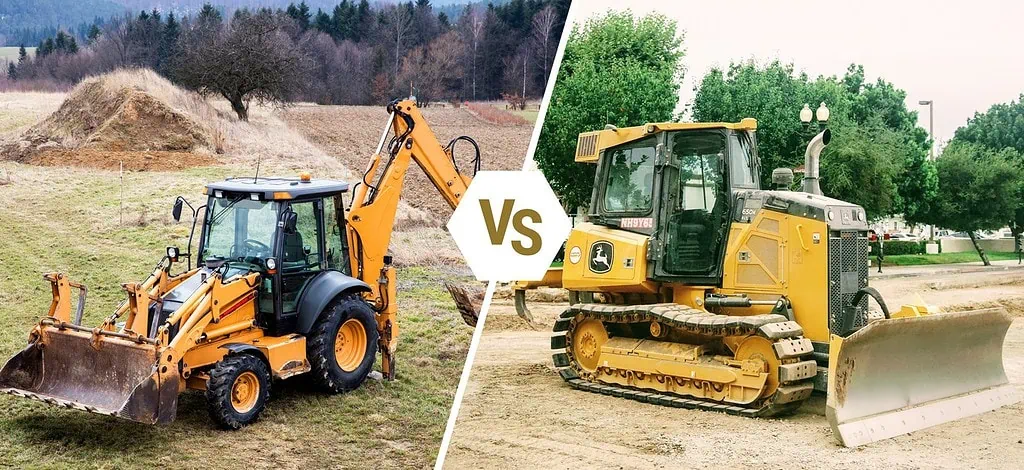
When Should You Choose a Bulldozer with a Backhoe Attachment for Your Project?
In some cases, combining a backhoe vs bulldozer attachment can offer significant advantages, especially if your construction project requires a combination of heavy earth-moving and precise digging. Here’s when this hybrid machine is most beneficial:
Multiple Tasks in One Operation:
A backhoe vs bulldozer attachment allows you to do both land clearing and excavation work without having to switch between two separate machines. This can save time, reduce labor costs, and increase your overall efficiency.
Land Clearing and Trenching:
If you have a project that involves clearing land and then digging trenches or foundations without stopping, the combination can be a lifesaver. The bulldozer blade can push debris to the side while the backhoe makes precise trenches or digs exact foundations.
Space Constraints:
When working in tight spaces where maneuvering two machines can be challenging, a backhoe vs bulldozer attachment gives you the flexibility to perform multiple functions without taking up extra space on the site.
Cost Efficiency:
The backhoe VS bulldozer combination allows you to rent one machine that can do the work of two. This setup can save you money on rental fees and reduce the number of machines you need to have on-site.
If your project involves a combination of activities such as grading, digging, and trenching, the backhoe vs bulldozer combination can make your life a lot easier.

Is a Wheel Loader a Better Alternative to a Backhoe or Bulldozer for Certain Construction Tasks?
A wheel loader is a very versatile machine that can accomplish a wide variety of construction tasks, but it’s not a direct replacement for a backhoe or bulldozer. That said, there are situations where a wheel loader might be a better fit. Here are some examples:
Material Handling:
Wheel loaders are designed for fast, efficient material transport. If you’re moving a lot of dirt, gravel, or debris from one spot to another, the wheel loader may be your best bet. It has a big bucket that can hold
a lot of material, and its speed makes it perfect for loading and unloading materials around the wheel loader job site.
Urban Construction and Tight Spaces:
It’s faster, more maneuverable, and takes up less space. In an urban construction setting where space is at a premium or you have to move materials in and out of tight spots or down narrow streets/lanes, a wheel
loader can do the job faster and more efficiently than a backhoe vs bulldozer.
Grading and Site Preparation:
While the dozer is unparalleled when it comes to heavy grading, the wheel loader can do light grading and site prep work, especially when the surface is relatively flat to begin with. It can quickly smooth out an
area and move dirt to level out the ground.
That being said, a wheel loader is not a direct replacement for the backhoe vs bulldozer. It’s better suited for handling materials and light grading.

What Are the Key Factors to Consider When Choosing Between a Backhoe or a Bulldozer for Your Specific Construction Needs?
To summarize, when working on your construction projects, it’s vital that you have the right machine for the job. These machines are the backhoe vs bulldozer vs excavator. Each excels at certain things, and
you must understand the differences so you make the right choice.
Type of Work:
Do you need to do detailed excavation work such as digging trenches or moving materials in tight or confined spaces? Here’s where the backhoe excels. It’s great for precision work. On the other hand, do you need to move large quantities of earth, clear land, and do some heavy land grading? This is when you want to consider bringing in a bulldozer
Tamaño del proyecto:
For smaller, more confined projects, the backhoe may be more practical. However, when you get into large construction projects or road building, having the power and the ability of a bulldozer for heavy
earth-moving is a necessity.
Terreno:
If you’re working in rough or uneven terrain, you’ll want to use a bulldozer that has tracks (crawler bulldozer) because that will provide more traction. If you have smoother terrain, a wheel bulldozer will suit you just fine. Because of its compact size and versatility, you can also use a backhoe for both rough and smooth conditions. Again, a backhoe is best for smaller, confined projects.
Presupuesto:
Bulldozers are usually more expensive upfront, but they are more cost- effective for large projects, land clearing, and the heavy moving of dirt. Backhoes are less expensive overall, but the costs can add up if you need to use a backhoe for heavy land clearing or if you need other equipment and attachments. There’s a lot to consider when choosing the right piece of equipment for your project.
Operational Efficiency:
It all depends on how quickly you want to get your project done. If you need to move a lot of earth quickly, a bulldozer will do it faster than a backhoe. If you need to dig a lot of holes or do some really precise work, you will need a backhoe. If you are doing a large project where you need to move material at a high pace, you will definitely want to have a bulldozer on the premises.
So, you need to look at all of those things to determine which piece of machinery is going to be best for your project.
What Are the Advantages of Backhoes vs Bulldozers for Large-Scale Construction Projects?
You need a bulldozer and you need a backhoe. Depending on the type of work you’re doing, a backhoe might be the right choice. If you’re doing other types of work, you’ll want to have a bulldozer around.
Bulldozer Advantages:
Bulldozers are made for moving massive amounts of earth, clearing land, and grading large areas. They are perfect for tasks like preparing construction sites, clearing land of brush, or even grading roads. The
big advantage of a bulldozer is that it can move a lot of dirt or debris very quickly. So, if you need to do some heavy-duty earth-moving and land preparation, a bulldozer might be the perfect tool for the job.
Backhoe Advantages:
This piece of heavy machinery is ideal for more detailed work like digging trenches, foundations, and loading materials in confined spaces. They’re great for excavating, trenching, and material handling
as well as digging foundations and a host of other tasks. When a project calls for precise excavation work, such as digging foundations or putting in a utility, you’ll want to have a backhoe on-site. Typically,
backhoes are more maneuverable than bulldozers and front-wheel loaders, especially in tight urban settings.
In the world of large-scale construction, it literally is the difference between the heavy-duty mover of the earth the bulldozer and the more precise and nimbler piece of equipment, the backhoe. In many
situations, they go hand in hand and are used together on projects.
Which Is More Cost-Effective: A Backhoe or Bulldozer for Long-Term Construction Projects?
The versus comes in when you start evaluating the long haul. Are backhoes vs bulldozers more cost-effective for your business? In most cases, the backhoe has a lower initial cost than a bulldozer, but you
will spend more on maintenance and upkeep to keep the backhoe in a state of readiness and useful for your business.
When considering cost-effectiveness, evaluate:
- Your project’s tamaño y duration.
- El frequency of use and the maintenance costs.
- El type of terrain and tasks to be completed.

Conclusión
In the end, which machine you choose for your construction project, whether it’s a backhoe VS bulldozer, will depend on the specifics of what you’re doing. The bulldozer is great for heavy earth-moving and land clearing. The backhoe is incredibly versatile and perfect for precision work, like digging holes for foundations or trenches in tight spaces.
Understanding both the role and the capabilities of both machinesis the key to being able to choose the right machine or machines for your specific job.For more information or professional advice, feel free to contáctanos.



